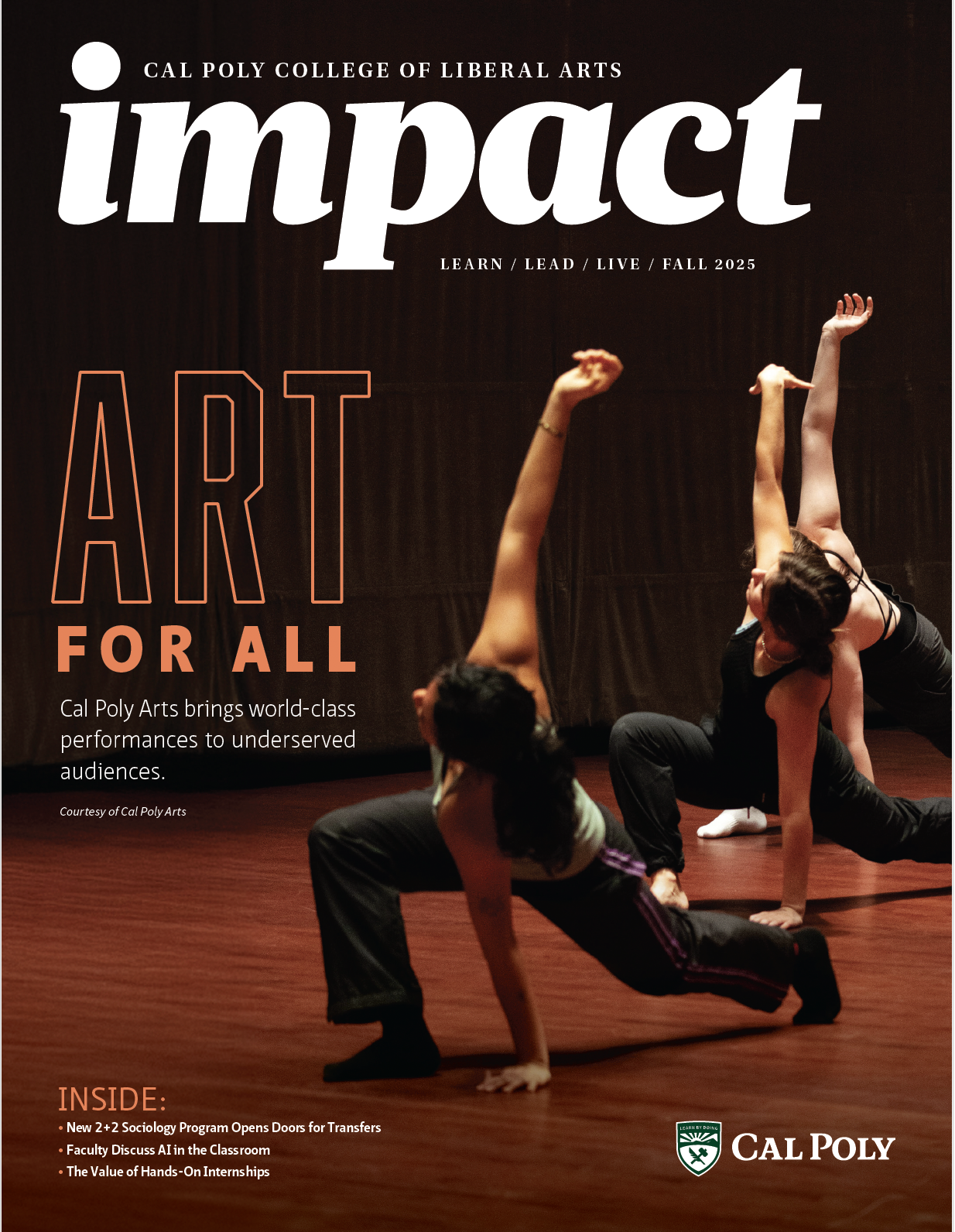Ethnic Studies and Sociology Student Receives CSU Trustees’ Award
A Cal Poly ethnic studies and sociology student from Santa Maria has received the 2017 California State University Trustees’ Award for Outstanding Achievement.
The Outstanding Achievement Awards are presented annually to one student from each of the CSU system’s 23 campuses. Jeremiah Hernandez, 29, like his counterparts throughout the state, was selected for superior academic performance, personal accomplishments, community service, and financial need. As part of the recognition, he will receive a $6,000 scholarship as the state’s Michael A. and Debe Lucki Scholar.

Jeremiah Hernandez, a Cal Poly ethnic studies and sociology
student from Santa Maria, who received the 2017 California State
University Trustees’ Award for Outstanding Achievement. Hernandez
says his daughter, Savannah, (left) as well as his family and the
community of Santa Maria “have driven me to continue
going forward.”
“I’m honored and humbled,” Hernandez said. “Recognition is not something that I’m particularly fond of. What is more exciting for me is seeing the possibility of being another positive example for my community of Santa Maria.”
That dedication influenced ethnic studies Professor Jenell Navarro to recommend him for the statewide award.
“Jeremiah stands out among the hundreds of students who come through my classes,” she said. “He is an insightful and critical thinker, and he is keenly aware of the importance of experiential knowledge in the academy and the world.”
Hernandez took two courses with Navarro after transferring to Cal Poly last fall. He also works as one of her teaching assistants.
“He is willing to speak up on behalf of underrepresented students and ensure their voices are not pushed to the periphery or represented inaccurately,” Navarro said. “He is a young scholar in his own right who wields his knowledge with purpose and intent to correct social ills.”
The product of a working-class family, Hernandez understands that attending college is an important goal. However, life’s realities — earning a living, getting married and divorced, overcoming health challenges, and being a single father to daughter Savannah — kept him from reaching that goal for many years. Wanting to be a positive example to his daughter, the 2006 Santa Maria High graduate returned to Hancock College in 2012 after several academic false starts — this time more determined than ever.
He became a full-time student in 2014 and worked to raise his GPA from 0.4 to 3.78. The perseverance paid off. Based on his grades, leadership and community service, he was inducted into the Phi Theta Kappa 2016 All-California Community College Academic First Team. Only 30 students in the state receive the recognition out of the more than 2.4 million enrolled in California’s 113 community colleges.
Hernandez graduated with an associate degree in liberal arts: social and behavioral sciences and was accepted at three CSU campuses.
“I chose Cal Poly for two reasons: my daughter and being close to our family; and so I could stay involved with the community of Santa Maria,” he said.
Overcoming struggles to succeed in school has inspired him to give back.
“My goal is to work in an educational field, particularly with underprivileged/underserved groups,” he said. “I’ve always kept an eye on being an academic counselor, and I’m planning on completing the single-subject credential program for teaching at a high school in Santa Maria. Ultimately, I’m planning on pursuing a doctorate so I’ll be able to work with students at both the high school and college levels, particularly to help bridge the gap between ‘underachieving’ schools and higher education.”
Navarro said Hernandez’s “life experiences” will benefit others.
“He is an incredibly hard-working student, parent and community member who is deeply invested in changing the educational system so that education becomes a project of freedom for all members of society,” she said. “I believe he will do significant work with his degree, and he will continue to lift up first-generation students of color who need to see themselves represented in institutions of higher education.”
